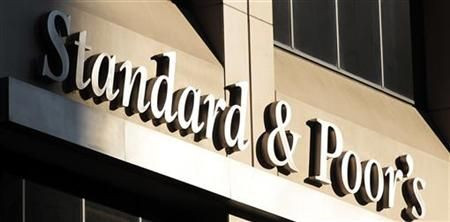S&P Downgrade: Senate Panel Reviewing U.S. Credit Rating

The Senate Banking Committee has begun looking into last week's decision by Standard & Poor's to downgrade the U.S. credit rating, a committee aide told Reuters on Monday.
The aide spoke on condition of anonymity to discuss unannounced committee business after the panel's chairman, South Dakota Democratic Sen. Tim Johnson, called S&P's move "irresponsible."
According to the aide, the panel was gathering information about the S&P move, but no decision has been made on whether it will hold hearings into the downgrade.
On Friday, S&P downgraded the U.S. credit rating for the first time to AA+ from AAA.
The change was guided by doubts over Washington's inability to achieve at least $4 trillion in long-term savings amid a national debt that has climbed above $14.3 trillion. S&P also took into consideration the "debacle" surrounding the last-minute increase of the debt ceiling last week.
Seeks Pro-Active Congress
"We think elected officials across the political spectrum are unable to proactively take measure to put U.S. public finances on a sustainable footing in the same sort of matter as some our most highly rated governments," said John Chambers, head of S&P's sovereign rating committee.
After a dramatic right between Republicans and Democrats, Congress and President Barack Obama agreed to a 10-year deficit reduction plan that would ultimately save a little over $2 trillion.
Johnson said the "irresponsible" downgrade may "have spillover effects that tax the American people by increasing interest rates on home loans, credit cards, and car loans, any by increasing the cost of finance for some state and local governments."
S&P was also under attack from House of Representative Majority Leader Eric Cantor, an outspoken Republican opponent of tax increases.
In a memo to fellow Republicans, Cantor said that S&P's analysis of the U.S. fiscal situation "is overly focused on resolving the debt crisis in a manner that would greatly worsen the jobs crisis," referring to S&P's contention that "the majority of Republicans in Congress continue to resist any measure that would raise revenues" to help ease the country's fiscal problems.
Meanwhile, the talk in Washington was that the S&P downgrade of the U.S. Government would likely increase pressure on the new Congressional "supercommittee" to end ideological differences and political posturing to quickly devise a substantive deficit reduction package that goes beyond the $1.5 trillion called for in the recently-passed U.S. debt deal that also raised the nation's debt ceiling.
"I think this is one of the most telling, important moments in our country's history right now," Senator John Kerry, Democrat of Massachusetts, said Sunday on the NBC program "Meet the Press." He added: "This poses a set of choices not just about a recession. It's about a financial crisis and the structure of our economy, which really has been misallocating capital."
However, the above is not to say that the U.S. Treasury Department has changed its stance regarding S&P's controversial decision regarding the U.S. Government: it hasn't.
© Copyright IBTimes 2025. All rights reserved.





















